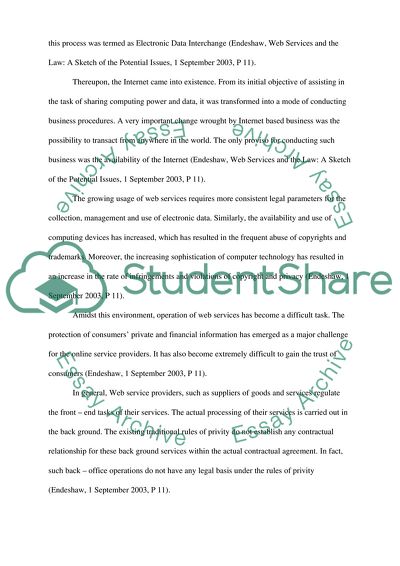Cite this document
(“E-Commerce Law in the United Kingdom Essay Example | Topics and Well Written Essays - 2000 words”, n.d.)
E-Commerce Law in the United Kingdom Essay Example | Topics and Well Written Essays - 2000 words. Retrieved from https://studentshare.org/law/1721681-it-cannot-be-denied-that-software-technology-and-electronic-transactions-have-evloved-at-an-alarming-pace-critically-examine-the-different-ways-in-which-these-have-boosted-the-growth-and-development-of-e-commerce-law-in-the-uk
E-Commerce Law in the United Kingdom Essay Example | Topics and Well Written Essays - 2000 words. Retrieved from https://studentshare.org/law/1721681-it-cannot-be-denied-that-software-technology-and-electronic-transactions-have-evloved-at-an-alarming-pace-critically-examine-the-different-ways-in-which-these-have-boosted-the-growth-and-development-of-e-commerce-law-in-the-uk
(E-Commerce Law in the United Kingdom Essay Example | Topics and Well Written Essays - 2000 Words)
E-Commerce Law in the United Kingdom Essay Example | Topics and Well Written Essays - 2000 Words. https://studentshare.org/law/1721681-it-cannot-be-denied-that-software-technology-and-electronic-transactions-have-evloved-at-an-alarming-pace-critically-examine-the-different-ways-in-which-these-have-boosted-the-growth-and-development-of-e-commerce-law-in-the-uk.
E-Commerce Law in the United Kingdom Essay Example | Topics and Well Written Essays - 2000 Words. https://studentshare.org/law/1721681-it-cannot-be-denied-that-software-technology-and-electronic-transactions-have-evloved-at-an-alarming-pace-critically-examine-the-different-ways-in-which-these-have-boosted-the-growth-and-development-of-e-commerce-law-in-the-uk.
“E-Commerce Law in the United Kingdom Essay Example | Topics and Well Written Essays - 2000 Words”, n.d. https://studentshare.org/law/1721681-it-cannot-be-denied-that-software-technology-and-electronic-transactions-have-evloved-at-an-alarming-pace-critically-examine-the-different-ways-in-which-these-have-boosted-the-growth-and-development-of-e-commerce-law-in-the-uk.


